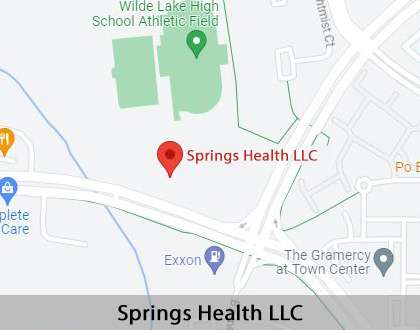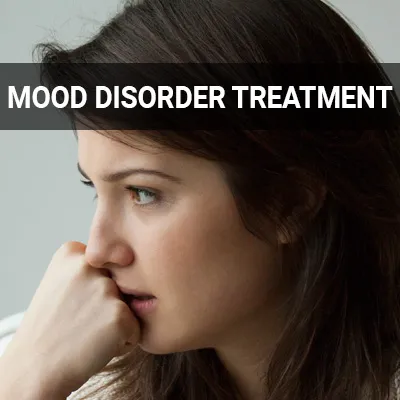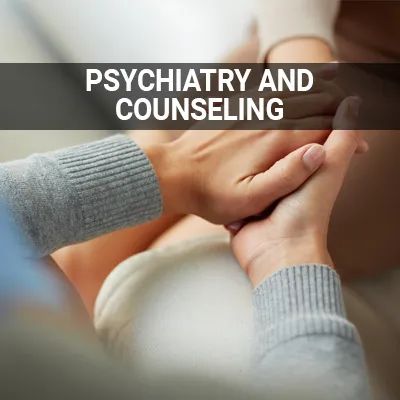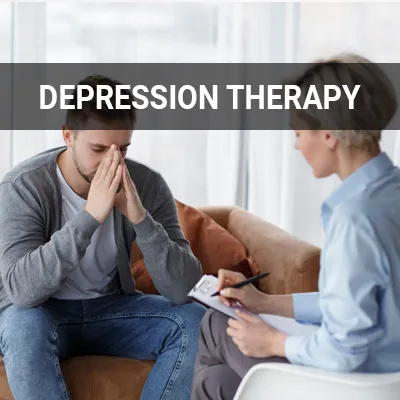Adolescent Psychology Columbia, MD
Adolescence is a unique stage of life that requires unique attention and care. Teenagers are particularly fragile and prone to psychological disturbances at their age. Adolescent psychology is tailored to their specific needs.
Springs Health LLC offers adolescent psychology in Columbia and the surrounding area. Our psychiatric team has an in-depth understanding of adolescent psychology. Make sure your teenager gets the specialized and personalized attention they need. Call us today at (410) 772-0774 to schedule an appointment or learn more about our services.
Adolescent Psychology vs. Adult Psychology
There are several distinguishing factors between adolescent psychology and adult psychology. The most obvious is that adolescents and adults are in two entirely different stages of life. According to Psychology Today, adolescence is the "transitional stage from childhood to adulthood that occurs between ages 13 and 19." It is not uncommon for this period to be full of both disorientation and discovery.
Adolescents frequently grapple with questions of independence and identity, and they are likely to deal with difficult choices regarding academics, alcohol, drugs, friendship, gender identity, and sexuality. In turn, these issues may, as stated by PsychologyToday, "lead to anxiety about physical development, evolving relationships with others, and one's place in the larger world." In contrast, adults have a more stable, fixed sense of identity and thus have different needs.
“According to Psychology Today, adolescence is the ‘transitional stage from childhood to adulthood that occurs between ages 13 and 19.'”
Who Are Adolescent Psychologists
As stated by Healthgrades , clinical child and adolescent psychologists are those professionals who specialize in preventing, diagnosing, and treating mental and behavioral disorders and psychological problems in young children and teens. They are also often known simply as child psychologists or adolescent psychologists. In addition to counseling patients, adolescent psychologists may teach, develop and evaluate programs, conduct research, create public policy, provide expert testimony, and consult.
Adolescent psychologists may treat individual adolescents, adolescents, and their families, or groups of adolescents. The type of treatment depends on the psychologist's specialization. However, psychologists do not prescribe medications. If medication is required, the psychologist may refer the patient to an adolescent psychiatrist on our staff for further evaluation and treatment. Adolescent psychologists commonly provide patients with crisis counseling, involuntary commitment, prevention and recovery programs, and psychotherapy (also known as talk therapy).
Required Education to Become an Adolescent Psychologist
Any licensed psychologist who serves adolescents may be known as an adolescent psychologist. Board certification in child or adolescent psychology is not necessary but is optional. Formal training, experience, and up-to-date board certification in clinical child and adolescent psychology may all signify a psychologist's continued level of expertise in the field.
In addition to earning a doctoral degree, a board-certified and licensed clinical child and adolescent psychologist has completed a one-year internship in professional psychology from an accredited institution (with at least two-thirds of the internship involving work with children or adolescents). They must also have obtained a license to practice psychology and completed a supervised, postdoctoral training program in clinical child and adolescent psychology. Additionally, a board-certified and licensed clinical child and adolescent psychologist must have passed a board evaluation and examination.
“As stated by Healthgrades, clinical child and adolescent psychologists are those professionals who specialize in preventing, diagnosing, and treating mental and behavioral disorders and psychological problems in young children and teens.”
Reasons to Seek Adolescent Psychological Help
There are several reasons why an adolescent may want to seek psychological help. According to the World Health Organization (WHO) , they are at a critical point in their lives for "developing and maintaining habits important for mental well-being." As such, they are prone to being particularly psychologically fragile. Reasons to seek adolescent psychological help include:
- Childhood behavioral disorders
- Early detection and treatment
- Eating disorders
- Emotional disorders
- Promotion and prevention
- Psychosis
- Risk-taking behaviors
- Suicide and self-harm
It is not uncommon for emotional disorders to emerge during adolescence, as do eating disorders and psychosis. Additionally, childhood behavioral disorders are among the leading causes of disease in both younger and older adolescents. Suicide is also the third leading cause of death in older adolescents, making prevention key. Early intervention for risk-taking behaviors can also ensure healthy living later on.
“There are several reasons why an adolescent may want to seek psychological help.”
Check out what others are saying about our mental wellness on Yelp: Adolescent Psychology in Columbia, MD
Benefits of Seeking Adolescent Psychology
CContrary to popular belief, adolescents can benefit from seeking psychological help even if they do not have any immediately pressing issues. While various forms of psychotherapy can help, many patients benefits from a combination of therapy and medication. This treatment is not only for life-changing issues or severe mental health problems. Instead, this type of treatment can help prevent minor issues from turning into major ones.
If left untreated, several mental health problems can continue into adulthood. These conditions include depression, anxiety disorders, behavior problems, and substance abuse issues. Therapy can also address situational issues, such as stress or legal problems. Teenagers with low self-esteem may also find that therapy helps raise their feelings of self-worth. Others may also find that adolescent psychology helps them recover from traumatic situations or grief. Adolescent psychology can help patients achieve overall better functioning, gain better coping mechanisms, and assist in emotional and moral development.
“Contrary to popular belief, adolescents can benefit from seeking psychological help even if they do not have any immediately pressing issues.”
Questions Answered on This Page
Q. What is the difference between adolescent psychology and adult psychology?
Q. What education do you need to become an adolescent psychologist?
Q. What are some reasons an adolescent may need psychological help?
Q. What should I expect from adolescent psychology?
People Also Ask
Q. What healthy coping mechanisms should people with anxiety incorporate in their lives?
What to Expect from Adolescent Psychology
It is important for adolescents to keep in mind that they are not "crazy" for seeking psychological help. In reality, at least one in five teens (or 20%) have mental health issues, and they should be taken as seriously as any other medical problem. Mental health encompasses how one acts, feels, and thinks in different situations. When one's mental health regularly affects one's life, it may be a problem that requires addressing.
Depending on the situation, adolescents may benefit from individual, group, and family therapy. While most therapies do not have a set time length, more complex problems generally take longer to solve. It may feel uncomfortable at first to talk about sensitive, personal topics. This feeling is normal and should be no cause for concern.
As an adolescent patient gets more comfortable with the psychiatrist they will be more willing to open up about their mental health concerns. Parents can aid in making teens feel more comfortable by explaining what a psychiatrist does and how they can help them. Just as with any doctor, not every psychiatrist is right for every patient, and finding a good fit is important. As always, parents should encourage their teens to ask questions and express any concerns they may have.
“When one’s mental health regularly affects one’s life, it may be a problem that requires addressing.”
Frequently Asked Questions
Q. Should parents be directly involved in adolescent psychology?
A. This is decided on a case-by-case basis. When determining the role of the parent in the treatment process, we will consider the patient's age, the nature of the problem, and evidence-based research in the type of treatment the patient is receiving. In any case, we will make sure parents are clear on the treatment goals for the patient and the milestones they are expected to undergo throughout the process.
Q. Will my child's symptoms change as they age?
A. Likely, yes. This is especially true for patients in the "tween" stage of life. Adolescence is a period of significant change, so one's behavioral health and mental disorders may look very different as time goes by.
Q. How can I tell if my child would benefit from adolescent psychology?
A. Symptoms of mental illness vary depending on the condition and the patient. However, common signs of depression include angry outbursts, social withdrawal, a sudden disinterest in activities they normally enjoyed, constant irritability, frequent crying, and constant irritability. In general, any significant changes in an adolescent's habits may be indicative of a need for psychological help.
Q. Will you tell me what goes on during my adolescent's therapy sessions?
A. It is essential that patients feel safe and secure in sharing their thoughts and feelings during each therapy session. Additionally, all mental health professionals are under an ethical obligation to afford their patients a right to confidentiality during sessions. As such, what your adolescent shares in therapy must stay in therapy. Exceptions may apply, such as if the patient expresses suicidal or homicidal intent.
Q. Is adolescent psychology covered by health insurance?
A. Many health insurance plans cover therapy. However, this is not always the case. The best way to know what is covered by your plan is to call your carrier directly.
Change Is Possible – Call Us Today
Life isn't always easy. Are you struggling? Are you looking for a highly personalized and professional approach tailored to your individual needs? Instead of waiting around, call us today. You should know that there is hope for a better tomorrow.
Definitions
Call Us Today
Adolescent psychology can help young patients at their most vulnerable stage of life. We at Springs Health LLC can help. Call us today at 410-772-0774 to schedule an appointment or learn more about our services.
Helpful Related Links
- Agency for Healthcare Research and Quality. Agency for Healthcare Research and Quality. 2023
- American Psychiatric Association (APA). American Psychiatric Association (APA). 2023
- Psychology Today. Psychology Today. 2023
- The American Board of Professional Psychology. The American Board of Professional Psychology. 2023
- The American Journal of Psychology. The American Journal of Psychology. 2023
- The National Association of Behavioral Healthcare. The National Association of Behavioral Healthcare. 2023
About our business and website security
- Springs Health LLC was established in 2021.
- We accept the following payment methods: American Express, Cash, Discover, MasterCard, and Visa
- We serve patients from the following counties: Howard County
- We serve patients from the following cities: Columbia, Clarksville, North Laurel, Ellicott City, and Savage
- National Provider Identifier Database (1689198350). View NPI Registry Information
- Norton Safe Web. View Details
- Trend Micro Site Safety Center. View Details
Back to top of Adolescent Psychology








